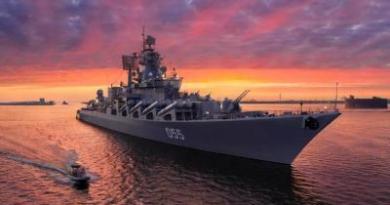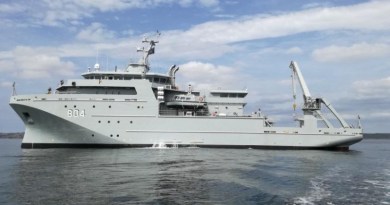EU launches naval mission “Operation Irini” to enforce Libyan arms embargo
Member nations of the European Union has agreed and approved a new naval mission to enforce the UN arms embargo against Libya.
The new mission called European Union Naval Force - Mediterranean (EUNAVFOR Med) ‘Irini’, is set to take off on 1 April. The first force generation conference on 31 March.
‘Irini’ replaces the EU’s Operation ‘Sophia’, which formally ended on 20 March.
Irini, (Greek for peace), will have as its core task the implementation of the UN arms embargo through the use of aerial, satellite and maritime assets. In particular the mission will be able to carry out inspections of vessels on the high seas off the coast of Libya suspected to be carrying arms or related material to and from Libya in accordance with United Nations Security Council Resolution 2292 (2016).
As secondary tasks, EU Navfor Med Irini will also monitor and gather information on illicit exports from Libya of petroleum, crude oil and refined petroleum products;
contribute to the capacity building and training of the Libyan Coast Guard and Navy in law enforcement tasks at sea;
and contribute to the disruption of the business model of human smuggling and trafficking networks through information gathering and patrolling by aircraft.
Irini will be led by Rear Admiral Fabio Agostini as EU Operation Commander, and its headquarters will be located in Rome, Italy.
“It has not been easy: six weeks of complex and difficult negotiations on how this mission should be implemented,”
“But we have agreed on all the technical details.” EU security and defence policy chief Josep Borrell told reporters.
“Diplomacy cannot succeed unless it is backed by action. This operation will be essential and a clear contribution to promoting peace in our immediate neighbourhood through a permanent ceasefire,” said Josep Borrell, High Representative of the Union for Foreign Affairs and Security Policy and President of the Council.
Operation’s Sophia’s sea patrols were suspended last March, after Italy’s then government (which backs the GNA’s administration in Tripoli), threatened to veto the entire operation. The mission was subsequently reduced to satellite monitoring and air patrols.
Operation Sophia which was named after a Somali baby girl delivered aboard a German Navy frigate was set up in 2015 to combat mass human-smuggling and to prevent loss of life at sea.
Initially, the EU agreed to launch Operation EU Active Surveillance on 12 February in order to enforce the U.N. arms embargo placed against Libya, after getting a nod by the 27 EU foreign ministers on 12 February, it was expected to incorporate naval ships, planes, as well as satellites.
Operation EU Active Surveillance was expected to carry out the anti-migrant and anti-weapons mission of ‘Operation Sophia,’ however, member states were urged to agree on whether gathering information on and upholding, the U.N. embargo should become Operation EU Active Surveillance “core task.”
Therefore, it seems that plans Operations EU active surveillance has been scrapped and replaced by the new European Union Naval Force - Mediterranean (EUNAVFOR Med) ‘Irini’.



